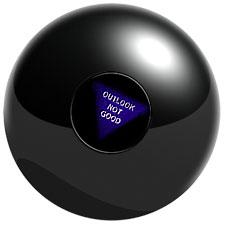The Commander of the US Strategic Command, C. Robert “Bob” Kehler recently offered support for the Triad — the trinity of bombers, land-based missiless and ballistic missile submarines — that some people have chose to characterize as tepid.
Now, admittedly by “some people” I mean two interns at the Heritage Foundation, one of whom now writes for Air Force Magazine.
Nukes of Hazard has posted Kehler’s remarks on the triad. As I suspected,
 Rather than heresy, Kehler’s defense of the triad. has been, in fact, quite orthodox. He actually made the canonical case for the ICBM-leg of the triad, based on promptness:
Rather than heresy, Kehler’s defense of the triad. has been, in fact, quite orthodox. He actually made the canonical case for the ICBM-leg of the triad, based on promptness:
And what the ICBM force gives to the president is the ability to respond promptly. I think that’s still a valuable component of the range of alternatives that we could offer to the president.”
This has always been the fundamental justification for keeping some portion of the ballistic missile force based on land.
The statement left me wondering: Are ICBMs really more responsive than SLBMs?
Read Full Story →





